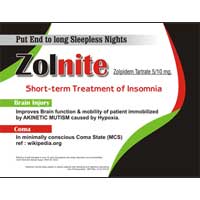Sleep is an essential aspect of our lives, and it plays a crucial role in our overall health and well-being. However, due to various factors, such as stress, anxiety, and medical conditions, some individuals find it challenging to fall asleep and stay asleep. In such cases, sleeping pills can be a useful tool to help induce sleep. In Pakistan, sleeping pills are widely available and commonly used by individuals who struggle with sleep-related issues. In this article, we will provide an overview of sleeping pills in Pakistan, including their availability, types, and potential risks and side effects.
Availability of Sleeping Pills in Pakistan
Sleeping pills are available in Pakistan both over-the-counter (OTC) and by prescription. Some of the most commonly used sleeping pills in Pakistan include:
Alprax:

This contains the active ingredient alprazolam, which is a benzodiazepine. It is primarily used to treat anxiety disorders but can also be used to treat insomnia.
Dormicum:

This medicine contains the active ingredient midazolam, which is a benzodiazepine. It is primarily used as a sedative for medical procedures but can also be used to treat insomnia.
Restyl:

This one contains the active ingredient alprazolam, which is a benzodiazepine. It is primarily used to treat anxiety disorders but can also be used to treat insomnia.
Zolfresh:

This tablet contains the active ingredient zolpidem, which is a non-benzodiazepine. It is primarily used to treat insomnia.
Zolnite:

Zolnite contains the active ingredient zolpidem, which is a non-benzodiazepine. It is primarily used to treat insomnia.
Trazine-H:

Trazine-H contains the active ingredient trazodone, which is an antidepressant. It is primarily used to treat depression but can also be used to treat insomnia.
Types of Sleeping Pills in Pakistan
As mentioned above, there are several types of sleeping pills available in Pakistan. These include benzodiazepines, non-benzodiazepines, and antidepressants. Each type of sleeping pill works differently and has its own set of potential risks and side effects.
Benzodiazepines
Benzodiazepines work by increasing the activity of a neurotransmitter in the brain called gamma-aminobutyric acid (GABA). This helps to slow down brain activity, reduce anxiety, and induce sleep. However, benzodiazepines can also be addictive and can cause withdrawal symptoms if used for long periods or in high doses.
Non-Benzodiazepines
Non-benzodiazepines work in a similar way to benzodiazepines but are less likely to cause dependence and withdrawal symptoms. They are also considered to be safer than benzodiazepines for older adults. However, they can still cause side effects, such as dizziness, headaches, and nausea.
Antidepressants
Some types of antidepressants can be used to treat insomnia, especially in individuals who also suffer from depression or anxiety. Antidepressants work by altering the levels of certain neurotransmitters in the brain, such as serotonin and norepinephrine. However, they can take several weeks to start working, and they can cause side effects, such as dry mouth, constipation, and weight gain.
Potential Risks and Side Effects of Sleeping Pills in Pakistan
While sleeping pills can be effective in helping individuals with sleep-related issues, they can also pose certain risks and side effects. Some of the potential risks and side effects of sleeping pills in Pakistan include:
Addiction:
Benzodiazepines can be addictive, especially if used for long periods or in high doses. They can also cause withdrawal symptoms if stopped suddenly.
Drowsiness:
All sleeping pills can cause drowsiness, which can affect an individual’s ability to drive or operate machinery. This can be particularly dangerous for individuals who need to drive or operate heavy machinery as part of their job.
Memory and cognitive issues:
Sleeping pills, especially benzodiazepines, can cause memory and cognitive issues, including memory impairment, confusion, and difficulty concentrating.
Risk of falls and injuries:
Sleeping pills can cause dizziness and balance issues, which can increase the risk of falls and injuries, especially in older adults.
Sleep-related behaviors:
Some individuals who take sleeping pills may engage in sleep-related behaviors, such as sleepwalking or sleep-eating, without being fully aware of their actions.
Overdose:
Taking too many sleeping pills, or combining them with other substances, such as alcohol or opioids, can lead to an overdose, which can be life-threatening.
It is important to use sleeping pills only as directed by a healthcare professional and to be aware of their potential risks and side effects.
Conclusion
Sleeping pills can be a useful tool for individuals who struggle with sleep-related issues. In Pakistan, sleeping pills are widely available, both over the counter and by prescription. However, it is important to use them only under the guidance and supervision of a qualified healthcare professional, as they can pose certain risks and side effects, including addiction, drowsiness, memory, and cognitive issues, and the risk of falls and injuries. By being aware of the potential risks and side effects of sleeping pills and using them responsibly, individuals can improve their sleep and overall health and well-being.
